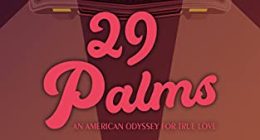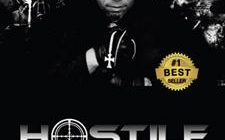More than 10 years ago, Jennifer Egan published A Visit From the Goon Squad, her groundbreaking novel of 13 interrelated stories in which she pushed style and theme to the limits of fiction’s boundaries. Not quite a sequel but connected to that earlier novel by several of the same characters, The Candy House remains true to Egan’s curiosity about technology and her commitment to experimenting with unusual narrative structures.
“Goon Squad never felt like a book I exactly finished,” Egan says with an easy laugh, speaking via Zoom. It’s a sunny January morning, and she sits in a comfortable chair beside a window that overlooks her wintry Brooklyn street. “The question was not whether I would keep writing about those people—because I always knew I would—but could I find a way to make a book viable on its own terms and not just an echo?”
One of the characters who returns in (and in a way, bookends) The Candy House is Bix Bouton, Sasha’s college classmate in Goon Squad who now takes center stage as a hugely innovative and wildly successful media magnate. Bix’s social media company, Mandala, developed the technological innovations Own Your Unconscious, which allows users to store their memories on a cubelike device, and Collective Consciousness, which allows the sharing of those memories to a database, where they can be accessed by anyone.
“Bix has a tiny role in Goon Squad, but I knew when I wrote [his] chapter that he would go on to invent something that would change social media,” says the author. “I also knew that Mindy, who was on safari in Goon Squad, would become a famous sociologist, and oddly, I knew that Susan, the wife of Ted Hollander, would have a relationship with one of her son’s friends.”
The challenge, Egan explains, was determining how to fold these inevitable plot points into the narrative styles she most wanted to use. “I was waiting for those to coalesce and feel alive, which is the only way I can seem to get to writing anything successfully. It’s trial and error. I’m like a windup toy. I bump and I turn and bump and turn again, and I keep going until I find a pathway.”
“Fiction comes the closest to giving us a sense of the play of another human mind, the intimacy of another consciousness. That is the secret weapon of fiction.”
It is impossible to read The Candy House and not marvel at Egan’s skill, from the range of techniques and shifting points of view used throughout the novel’s 14 chapters, to the skillful incorporation of to-the-minute tweets and emails. Surely Egan had a wall of Post-its to keep the characters straight. “Well, I am a Post-its maniac,” she concedes good-naturedly, “but seriously, I think there is something that has to flow in a book like Candy House, where there’s a back and forth between finding material that feels alive and some of these approaches that I wanted to try.”
The technologies in The Candy House came to the author “inductively,” not as inventions to intentionally explore in a novel. “We are so used to being able to find someone on social media, and yet there are so many people that we don’t have quite enough points of reference to find, and that sort of unknowability makes them more tantalizing,” she says. “What would be the vehicle for finding them? How could I make that even possible? Suppose there was a machine that could do that?”
Bix’s consciousness-sharing product certainly doesn’t seem a far cry from our present reality, in which people eagerly offer their DNA to be evaluated and uploaded to genealogical databases. At the heart of The Candy House is the seduction of life online; even as we acknowledge the risk of sharing personal details, we’re lured in by the sense of knowledge offered by ingesting other people’s information. We run toward the danger, eager to gobble up all we can before the witch comes out and spoils it for us.

“I am almost always curiosity- and desire-driven, and that underlies a lot of what I end up imagining,” Egan says. “Usually, if there is technology I invent, even as I know that there would be grave disadvantages, there’s something attractive to me.” One example of this double-edged sword is found in the chapter titled “What the Forest Remembers,” in which Charlie accesses her dying father’s memories of a life-changing trip to a redwood forest, but the viewing comes with devastating knowledge about the dissolution of her parents’ marriage and the roots of her own awkward relationship with her father.
As to be expected, Bix’s inventions spur the rise of an opposition. “Eluders” choose to exercise their right to be forgotten, and a company called Mondrian allows them to erase their digital footprints or, more disturbingly, create false avatars to conceal their true locations and identities. Bix’s son Greg, a would-be novelist who makes his living selling weed, is an eluder, and so is Lily, the daughter of Goon Squad’s morally compromised publicist Dolly. Lily is also a former spy whose brain has been infiltrated by a “weevil” that tracks and reports her every thought.
“Each new iteration of technology seems to bring about a kind of analogous unfolding of discoveries,” Egan says. “For example, there are huge advantages to the ease of DNA analysis, and yet once you’ve had your DNA analyzed, it’s part of a worldwide database. It’s no different [in the novel]. With every discovery, there’s a reaction to that discovery. In The Candy House, it’s the two organizations Mandala and Mondrian—one that offers access, the other the ability to disappear. As the technology unfolds, it becomes a dialectic between the lure of access with all that it brings, including the loss of privacy, and the counter to that is the will to vanish, a real-life wish to be unavailable.”
Egan is quick to point out that something already exists in our world that offers access to people’s inner thoughts in a manner similar to Mandala’s technology: fiction. “I realized as I was writing that this machine, which I created, can do what fiction already does,” she says. “The fun, voyeuristic nature of fiction lets us peek into people’s minds. I love the idea that, in a way, I was reifying the kind of advantages of fiction as a Silicon Valley device.”
In the chapter “Eureka Gold,” Greg makes this connection as well, as he realizes that writing a novel is an act of shared consciousness. This idea connects him to his father’s greatest creation. “I feel it’s what fiction can do that nothing else can do,” Egan says, “and it’s why it has remained relevant to the degree that it has. Nothing else suggests an inner life quite that way. Fiction comes the closest to giving us a sense of the play of another human mind, the intimacy of another consciousness. That is the secret weapon of fiction.”
“Fiction is about confronting and honoring the mystery at the heart of human experience, so I would never give the book a tidy ending.”
By the novel’s end, despite the myriad storylines and characters, The Candy House all comes together—though, fittingly, not without a few enticing threads left dangling.
“My job is to bind what I have in such a way that it really metabolizes into one creature,” Egan says, “but I’d never want to totally wrap things up. Fiction is about confronting and honoring the mystery at the heart of human experience, so I would never give the book a tidy ending. In the end, to me, the enormity of what I am trying to evoke is that using language to capture human experience and human consciousness is magic. More magic than any machine.”
And will we see these characters again? Will Greg become a novelist? Will Charlie find peace? What happens to Lily and the weevil in her brain?
“I’ve got things I know and things I haven’t done yet,” Egan admits with a smile. “I’m already concocting!”
Photo of Jennifer Egan by Pieter M. Van Hattem.






